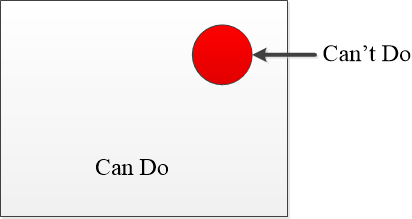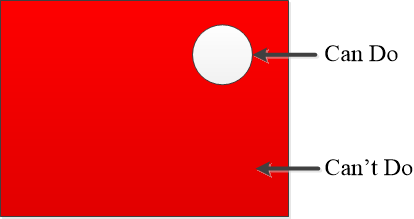Reprinted from livingrightly.net
This next series extends the conversation begun last time. That article ended with the statement that today’s liberals are betting prosperity can only occur under government direction. Its all about achieving specific ends, ends that must be directed from the top. That is the basis for their false claim the Obama administration’s policies are responsible for this past year’s economic growth.
At the heart of such notions is the collectivism underlying today’s liberalism, in all its forms including progressivism and socialism. This article focuses on justice’s role within that ideology, and how it differs from traditional justice. That traditional view has been held to be true from history’s first recording until only a few centuries ago. It was incorporated into our nation’s founding principles. As we’ll see, these two views are contradictory and incompatible. They cannot coexist.
The Virtue of Justice
Our republic is built on the idea of self-governance, which requires a moral society, one that possesses virtue. Virtue is righteousness; virtue is grounded in morality. As God is not only good, but the source of all good, He is also the source of all morality. Our country’s founders noted the importance of the virtue and morality in supporting society. George Washington said the following in his farewell address, “Of all the dispositions and habits which lead to political prosperity, religion and morality are indispensable supports. In vain would that man claim the tribute of patriotism, who should labor to subvert these great pillars of human happiness, these firmest props of the duties of men and citizens.”[1]
Justice is the virtue where each person receives what they are due based on their actions. This requires discerning good from evil, the just from the unjust. Man’s pursuit of justice is not perfect as he can only judge based upon actions and not the heart. Justice’s traditional role places significant reliance on both negative rights and a negative test for justice. We’ll briefly cover both.
Negative Rights
There are some significant differences between positive and negative rights. Natural rights come from God and are almost exclusively negative ones, whereas human rights are generally positive and come from man. These differ in the following way. Negative rights describe what one is to refrain from doing. They set limits on actions. A person is free to choose their actions up to the point where a specific action is not permitted. If we were to diagram this relationship, it would look like the following.

Figure 1: Negative Rights
On the other hand, positive rights set limits by restricting the allowable actions a person can take. They can reflect a simple yes/no decision, and can be diagramed as follows.

Figure 2: Positive Rights
Some implications of these differences include;
- Negative rights require exercising personal responsibility. Positive rights simply require obedience.
- Negative rights promote unity and equality, thereby promoting peace. Positive rights promote conflict and inequality as positive rights often violate even other positive rights. The first state that everyone is equal in terms of their nature and rights. The second represents the pagan thought that some are more equal than others.
- Negative rights promote the virtue of justice. Positive rights diminish virtue, including justice.
- Negative rights promote freedom and self-restraint as it limits individual coercion. Positive rights are all about coercion and therefore limit freedom and remove self-restraint.
Traditional Justice
We mentioned above that negative rights promote the virtue justice. They do so in the following way. As everyone is subject to the same limits, there is equality under the law. They do this by establishing justice as a process which has no particular end other than society’s common good. Rules, procedures, and standards are developed by society over time, and new ones seen as beneficial are incorporated into that body of rules, a process involving the entire society. Some examples include; the use of financial instruments, contracts, negotiations, practices for buying/selling, standards for personal behavior, and actions unacceptable within the public domain. Many of these rules are not even in writing. Society uses these rules to set expectations, but they do not guarantee a particular outcome.
Instead when an individual violates a rule, or more frequently when one of these rules comes into conflict with another rule, justice requires a reexamination of the rule to see if it needs either some modification or to be set aside all together—a negative test. It does this by examining other related rules about which there is no question, a process requiring discerning good from evil. In the traditional view justice uses this negative test to improve the process by improving the rules. We begin from wherever we presently are and try to remove injustice; what remains is justice. We are unlikely to ever fully achieve our goal, but our effort is to continually strive for it.
We can use wood carving as a practical example. One starts with a simple piece of wood. The carver sees within the wood an object. By continuing to shave away pieces from the wood, the carver uncovers the object he previously envisioned. It is no different with justice.
Modern Liberalism and Traditional Justice
Our society consists of millions of people making hundreds of millions of decisions every day. In such a society the specific ends for each individual will be different, based upon the facts around each one’s circumstances, needs, desires, etc. The traditional view of justice, one based upon Christian principles, supports this approach and enhances it. However, this approach also requires morality and virtue to effectively exercise the personal responsibility of freedom necessary in an environment with minimal coercion.
Modern liberalism violates the traditional approach in a number of ways, including;
- No one can even know, let alone create, a system which allows all individuals to achieve their ends. Instead, liberalism simplifies things by reducing the number of particular ends one can achieve to something it finds manageable.
- This focus on achieving particular ends ignores the process, the means for achieving them—the role of traditional justice.
- Modern liberalism not only seeks to achieve particular ends, but to achieve those ends for specific individuals and/or groups. It promotes the pagan notion that some are more equal than others.
- Unintended consequences arise from the conflict created by positive rights, and ensures that the particular ends will only be achieved for a very few at the expense of everyone else.
- Government control is required to achieve these particular ends, reducing freedom by increasing coercion. One result of this shift is that politicians and civil servants become enamored with gaining constituent support instead of simply doing the right thing. Look at the current supreme court nomination hearings in this light.
- Emotion rules over reason. With traditional justice a person desires something (emotion) and the rules comprising the process informs that person how they are allowed to get it (reason). Many of the rules are not written down, we only know them through culture and experience. Liberalism’s focus on particular ends alone results in its focus on emotions—that is, what we want.
Conclusion
Modern liberalism ignores the fact we are ignorant of all the facts that go into all the decisions that each individual makes, and does so by creating a ruling elite and giving them the power to exercise control. Such a view is not only un-Biblical, but anti-Biblical. It asserts either God does not exist, or He is not active in our affairs and therefore man must act on His behalf. Both views are patently false, and easily dispelled by simply looking around us. The promise we were given is that if we were turned toward God we would be blessed by Him.[2] When we choose to turn away from Him we lose that blessing.
Positive rights strive to create positive actions and require positive rules to enforce them. This is accomplished through legal positivism which legitimizes coercion in achieving particular ends. Socialism builds on this idea with a goal of transforming all law into administration—that is, bureaucracy.[3] This entire approach rests on a tautology that cannot be contradicted under the definitions positivism itself adopts (i.e., circular reasoning). This reasoning is all law is derived from the human will, and the law does not exist until it has been created by the legislature.
These assumptions ignore God and justice’s traditional role. In fact, this liberalism does not even acknowledge a negative test for justice even exists—nor can a positive test. Instead, justice is what the legislature and/or judge decides it is. The result of its focus on particular ends alone, ends subject to change at any time. It is on its surface an asinine set of assumptions that is not even worthy of rationale consideration. It is sheer stupidity, or if you prefer, sheer human arrogance. But that is a subject for another article.
Ideas matter. They shape our choices, and those choices shape our actions. This is not about party, but about principles—ideas. Each and every one of us needs to get out and vote, not for a party or person but the principles they’ve embraced through both their actions and inactions. The 2016 election was only a reprieve, the real work has only begun.
This article lays out the premise for my forthcoming book A Handbook of Natural Rights, examining why we have natural rights, the basis for some of the more significant ones, and the obligations we incur when accepting them. I hope you will give it a look.
Footnotes:
[1] Washington, George, Washington’s Farewell Address, http://avalon.law.yale.edu/18th_century/washing.asp.
[2] See for example, Deuteronomy 7:12-6.
[3] Hayek, F.A., p. 76, Law Legislation and Liberty, Volume 2, The Mirage of Social Justice, The University of Chicago Press, 1976.




